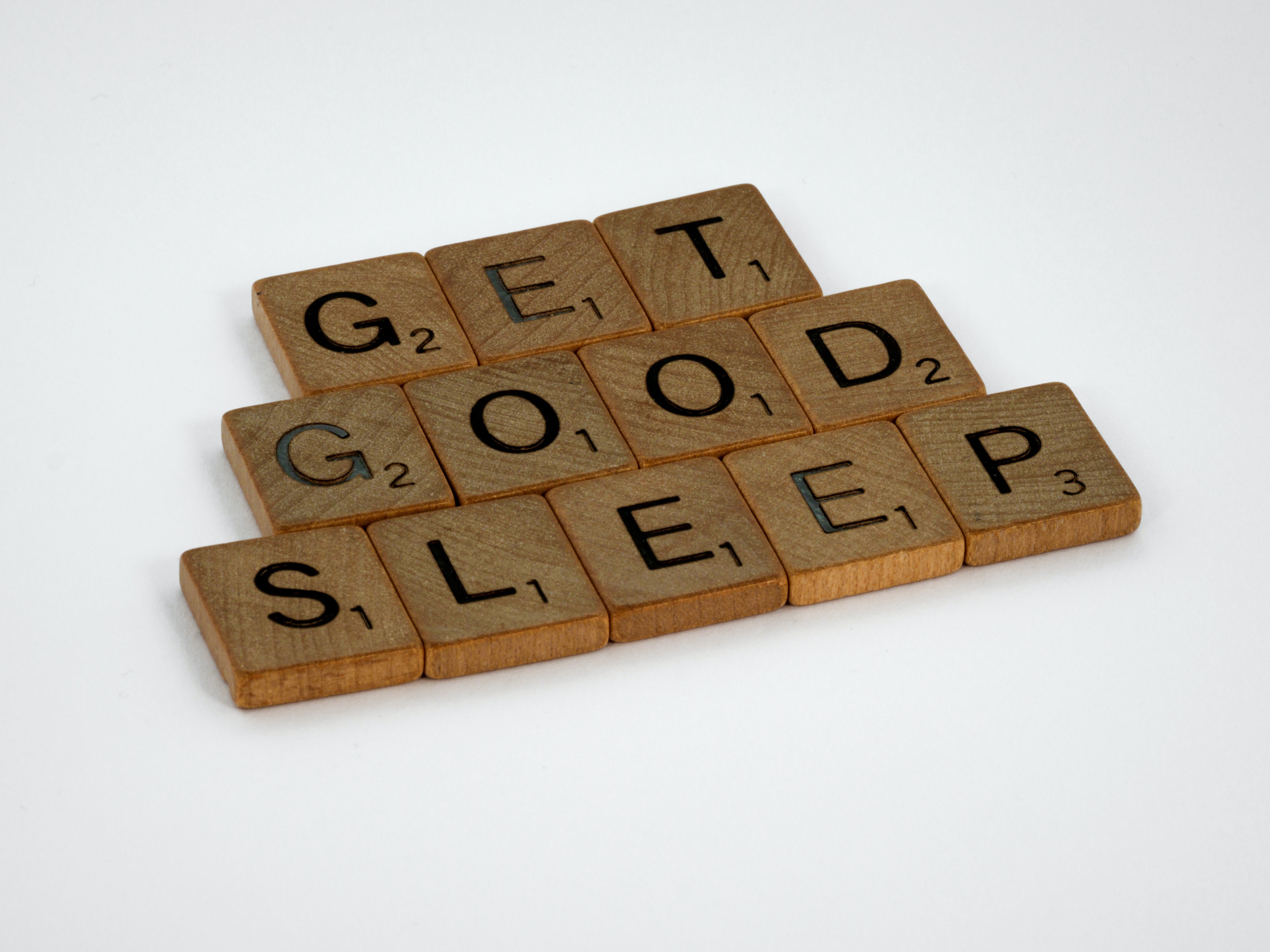What if scientists discovered a centuries-old remedy that can help you live longer, improve your memory and creativity? Following this ancient wisdom can make you more attractive, keep you slimmer and lower food cravings. Studies show it wards off colds and flu, lowers your risk of heart attacks and strokes. This treatment can even make you feel less depressed, less anxious and even feel happier. Are you interested? Here it is...
Sleep. Go to sleep. Zzzzzz.
Most people know that a bad night’s sleep can create a less than sharp morning, and beyond. But more than this temporary annoyance, getting enough sleep is essential for total optimal health and well-being. Sleep is as vital to overall health as regular exercise and a balanced diet. It rates as high in health value as all the most important life-giving behaviors you can think of. The American Sleep Association goes as far as saying that proper sleep can actually save your life. According to top sleep experts, among its many various and wide-ranging benefits, sleep can support:
- Better productivity and concentration

- Lower weight gain risk
- Improved athletic performance
- A lower risk of heart disease
- More social and emotional intelligence
- Depression prevention
- Lower inflammation
- Enhanced immune system
10 Tips for a Better Night’s Sleep
from the National Sleep Foundation
https://www.thensf.org/sleep-tips/
1. Go to sleep and wake up at the same time every day, including weekends. It’s important for your body to have a regular sleeping schedule.
2. Set a relaxing bedtime routine, such as listening to calming music, reading a book or taking a warm bath.
3. Make sure your bedroom is cool. Your body temperature naturally decreases to initiate sleep. A bedroom temperature between 60 and 67 degrees Fahrenheit helps promote sleep.
4. Make sure your bedroom is quiet. Turn off noisy distractions such as a TV. Silence unwanted noise with earplugs or use “white noise,” such as from a fan, sound machine or an app.
5. Make sure your bedroom is dark. Use blackout shade to block out unwanted light and dim the lights on your digital clock.
6. Sleep on a mattress and pillows that are comfortable and supportive.
7. Finish eating meals 2-3 hours before bedtime.
8. Exercise regularly. A low-impact fitness program, like walking, swimming or yoga, is helpful for managing pain and stiffness and improving sleep.
9. Try to limit how many caffeinated products you consume in the afternoon.
10. Alcohol and nicotine in your body can disrupt sleep and can cause nighttime waking. For optimal sleep, skip them close to bedtime or altogether.
And Finally: Don’t discuss emotional issues in bed. Determine your wonderful destination bed is best used for sleep, sex, sometimes sickness… and maybe the Sunday Paper.
Why We Sleep
Matthew Walker, PhD, and noted researcher has based his book, “Why We Sleep” on showing us how proper sleep can give us all of this and more. Written in a friendly and scientific manner, he provides clear examples of how modern society has devalued and minimized our need to sleep and the consequences we have paid for this. In this book, he clearly outlines the research behind his practical suggestions for sleep that anyone can do immediately and without any medical intervention. If you are tired of making new year’s resolutions and can only muster the strength to make ONE change, changing your sleep is a game changer!
Truth or Myth?
(From Matthew Walker “Why We Sleep” 2017
Schribner Publishing, ISBN 978-1-5011-4432-5)
1. Humans need 8 hours of sleep per night.
Truth – Humans produce a chemical called adenosine which triggers sleep pressure (eyes want to close, energy drops, consciousness declines). Adenosine begins to build once we are awake and the body has 12-16 hours before this sleep pressure is very high. It takes 8 hours of sleep for the body to dispose of the adenosine. Sleep less than 8 hours and the leftover adenosine will affect you during your awake hours.
2. The amount of sleep humans need per night is the same across all age groups.
Myth – Infants display polyphasic sleep, many short snippets of sleep throughout the day and night, much to the distress of their mono-phasic parents. It is not until about age 2-3 months that infants begin to show signs of a daily rhythm. By one year old, the infant is awake most of the day interspersed with a few naps and more nighttime sleep. By age 4 the child has shifted to a biphasic pattern of one daytime nap and nighttime sleeping. By late childhood the child has adapted to a monophasic sleep just like their parents. Their circadian rhythm usually initiates sleep around 9-10pm each night.
The circadian rhythm of adolescents begin to change around age 16. One significant change is sleep now begins to initiate 1-2 hour later than normal. Adolescents need more sleep now in both REM and NREM stages for brain development but the challenges of a sleep pattern that is different from their parents and early start times for school can create shorter sleep.
Adults tend to have a monophasic sleep pattern of one nighttime and daytime wakefulness in their 20’s. There are some cultures that provide for a midday siesta. Sleep pressure (eyes become heavy, drowsiness, and body tiredness) occurs after 15-16 hours of wakefulness.
Older adults still need 8 hours of sleep but have greater difficulty in generating that sleep. Deep NREM sleep quality declines as we age due to changes in our brains as we age. During our later years we experience sleep fragmentation due to weakened bladder or medication use. Initial sleep times also move earlier which can lessen sleep pressure leading to lower quality sleep.
3. Humans can make up for lost or shortened sleep later in the same week with no major consequences.
Myth – Humans need more than 7 hours of sleep each night to maintain cognitive performance. After 10 days of seven hours of sleep, the brain is as dysfunctional as it would be after going without sleep for 24 hours. Three full nights of recovery sleep are insufficient to restore performance back to normal levels after a week of short sleeping.
4. Sleep deprivation is a common problem of having adequate ability to sleep yet giving oneself an inadequate opportunity to sleep.
Truth - Most people struggle with being sleep deprived which is not giving oneself adequate opportunity to sleep due to long work hours, gaming, staying out late, using electronic devices late. Insomnia is a serious condition which combines the suffering from an (i) inadequate ability to generate good sleep quality or quantity despite (ii) allowing oneself the adequate opportunity to get sleep (7-9 hours).
5. Having a drink or two of alcohol before bedtime helps with insomnia.
Myth – Alcohol sedates you out of wakefulness but does not induce natural sleep. As you begin to feel inebriated, your desire and ability to remain conscious decreases. Alcohol is akin to a light form of anesthesia and it fragments sleep with brief awakenings through the night. These awakenings are not remembered but can result in next-day exhaustion. Alcohol also suppresses REM sleep which is important for consolidating learning and memories and dream sleep. Going long stretches without dream sleep can produce pressure to obtain REM sleep and aggressive intrusions of dreaming while awake.




